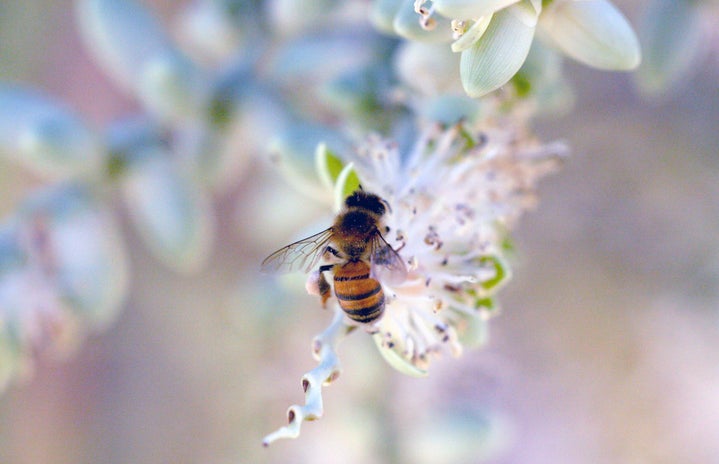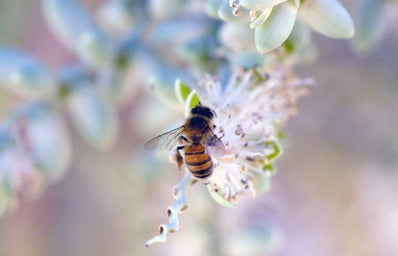As spring has just recently begun, we see flowers blooming, the tree buds blossoming, and warm air making its way back to us. However, there’s always the inevitable downside to warmer weather: the tiny black and yellow buzzing insects that fly around and seem like their only purpose is to bother us: bees. As annoying (and slightly terrifying) as they are, bees actually contribute to maintaining our environment. The problem is, we’re at risk of losing them.
The Current Endangerment of Bees
North American native bees are declining. Since there are so many species of bees, it’s difficult for scientists to be able to know the status of each species. However, data studying specific species of bees shows an indication that bees are in decline and are at risk of extinction. The Xerces Society and the International Union for Conservation of Nature found that 28% of bumble bees in North America are said to be threatened. Additionally, 50% of the leafcutter bee species, as well as 27% of the mason bee species, are found to be at risk.
Most bee species live underground. While this may seem like the safest living option, more than a quarter of North America’s 46 bumble bee species, who are all ground nesters, face a risk of extinction. Since 2021, the U.S. Fish and Wildlife Service has determined that the American Bumble Bee is actually qualified to be protected under the Endangered Species Act after its population dropped by almost 90%. There are a few reasons why bees are declining, which include:
- Habitat loss
- Pesticides
- Climate change

Bees Keep Plants (And Us) Thriving
Bees are most often seen buzzing around a garden full of flowers and all different kinds of plants. The reason for all this commotion is that they’re pollinating, which allows plants to be able to produce seeds. Without plants being able to produce seeds, they wouldn’t be able to survive and consistently grow. Plants serve an important part in human lives. For example, plants produce a third of humans’ food supply, prevent soil erosion, and produce oxygen.
What Can We Do to Help?
Our habits can have a big impact on the environment, despite people thinking: I’m just one person — I can’t save the environment. While it does take a group effort to make big changes, our good deeds don’t go unnoticed. There’s no harm in helping the environment, so why not? Here are a few ways you can contribute to saving the bees:
- Grow a garden. This one is a good option if you have a green thumb. Planting flowers of different shapes, sizes, and colors that are rich in nectar and pollen, provides a safe space for the bees. These gardens don’t have to be extravagant either — they can be started in window boxes or even in flower pots. Not only are bee gardens helpful to the bees, but they’re also very pretty.
- Plant a tree. Bees actually get most of their nectar from trees! When a tree blooms in the springtime, it provides thousands of blossoms that bees are able to get nectar from. Tree leaves also provide nesting material and a safe habitat for bees. As well as being beneficial to the bees, trees provide us oxygen, manage watersheds, and even help to cool air temperatures.
- Protect ground-nesting bees. Ground-nesting bees are responsible for pollinating 80% of the world’s plants that flower, which is why it is so important to protect them. By keeping the leaves that fall onto the ground during fall covering the ground, it provides a safe covering for bees’ underground nests during the winter. Additionally, by avoiding using mulch in gardens or yards it allows bees to easily be able to dig down into the soil.
- Support beekeepers and bee-centered organizations. There are many ways in which to support beekeepers in your community. Farmer’s markets in your community may have vendors that sell locally-made honey and beeswax products. You can also volunteer your time to local beekeeping societies and environmental groups.

The bottom line is: we need bees. Bees play such a huge part in taking care of our environment. Bees keep plants alive, thus keeping us alive. By doing what we can to save the bees, we’re not only saving them, but we’re also saving ourselves.
Can’t get enough of HC UMass Amherst? Be sure to follow us on Instagram, listen to us on Spotify, like us on Facebook, and read our latest Tweets!


